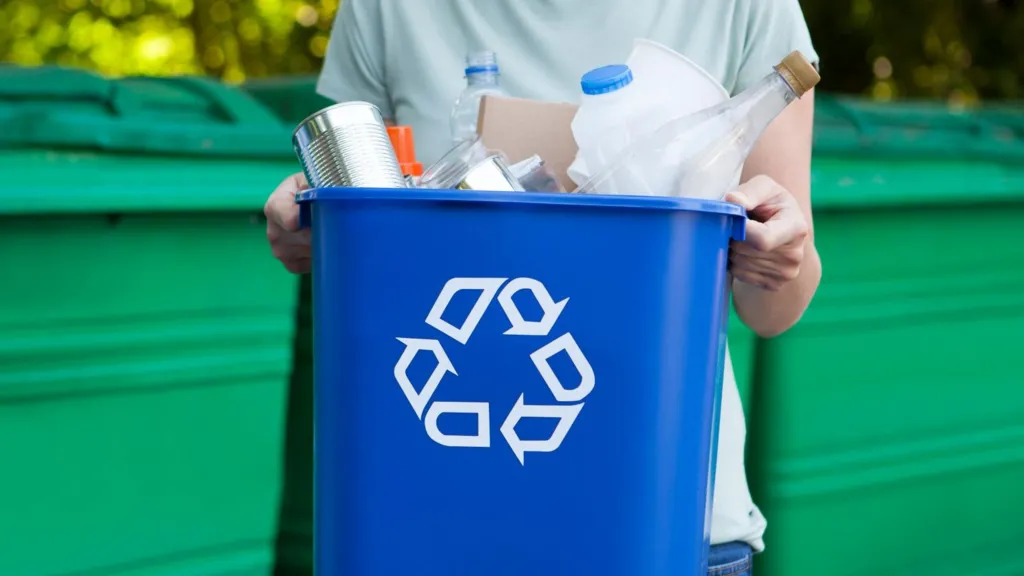Some councils in the south of England are recycling more than double the amount of household waste compared with others in the region, according to government figures.
The statistics published by Defra showed "considerable variation" for the 2023/24 financial year.
For the second year in a row, South Oxfordshire District Council had the highest recycling rate in the country with 62.9%, the Vale of White Horse District Council achieved 60.7% closely followed by Dorset Council on 60.5%.
The data revealed several councils fell well below the 44% national average, with Portsmouth City Council on 27.9%, Gosport Borough Council on 26.3% and Slough Borough Council on 24.9%.
The government has said new policies would end the postcode lottery of bin collections and streamline recycling across the country.
Paul Fielding, head of housing and environment at South Oxfordshire District Council, said the success was down to residents' continued commitment to recycling.
"We're incredibly proud to top the recycling tables for the second year running… and a decade in the national top five," he said.
"We are now prioritising more sustainable waste management and working to support our residents to reduce, reuse, repair, refill and re-home items, rather than looking to recycle as the go-to option."
At a national level, 5.5% of all local authority collected waste in England was sent to landfill in 2023/24 – the equivalent of 1.4 million tonnes.
Overall, 50.2% (12.6 million tonnes) was sent to incineration and 41.4% (10.4 million tonnes) for recycling.
Why do regional recycling rates differ?
The variation in recycling rates across local authorities is influenced by a variety of factors such as how heavily populated an area is, the kind of housing and levels of organic or garden waste collected.
Vicky Beechey, Oxfordshire Resources and Waste Partnership Manager, explained: "It'll be the way residents engage with those systems; I think green waste can play a part here… areas where you've got bigger gardens – more green waste is generated.
"I think also it'll be the types of housing – flats it's more difficult to recycle and houses of multiple occupancy.
"And then lastly I think it's the breadth of materials that can be collected and put into a recycling bin – the bigger the breadth, the more material can be collected, the better the recycling rate."
Authorities that do not collect food waste or plastic tubs, pots and trays, for example, tend to have lower recycling rates.
Thirteen councils in Hampshire recycled less than the national average for household waste, according to the latest figures.
Having led the way in the late 1990s with significant investment in recycling facilities in Alton and Portsmouth, the county's ageing infrastructure is not able to process the same level of materials other councils now collect.
Hampshire County Council is planning a "major overhaul" of what can be recycled.
A spokesperson said: "An investment of some £50m has been earmarked for this and we are poised for final decisions on how best to move forward with the construction of new infrastructure that will make recycling easier for local residents."

